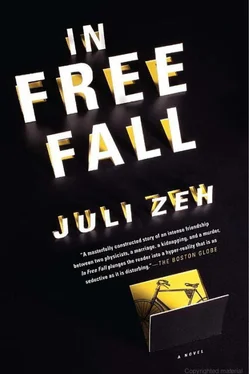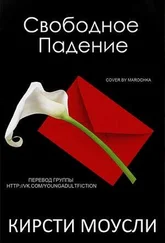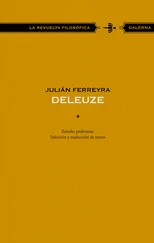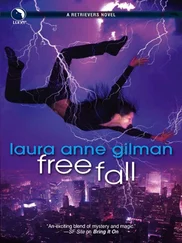Sebastian’s Adam’s apple moves up and down in close-up. Schilf takes hold of his girlfriend’s wrists and forces her to uncover her ears.
“Listen.”
“Let me put it in Orwell’s words,” Oskar says.
As he stands up, the murmuring in the audience swells to a roar that makes the floor of the apartment vibrate. The rustling of clothing. Oskar’s leather soles on the wooden rostrum. How dare he , hisses the television host. Oskar’s microphone is lying on the glass table and it is difficult to hear what he is saying. He is pointing at Sebastian with an index finger.
“Now,” Schilf says, leaning forward.
The microphones in the auditorium have picked up Oskar’s voice. He sounds as if he is speaking from a great distance.
“That is Dabbelink,” the detective hears him say.
“Turn it off now,” Julia orders.
Schilf has dropped the remote control; Julia reaches for it and pauses the tape. On the screen the host freezes with his arms raised; all three figures are united in one trembling statue. Next the host would probably attempt to point to the physicists’ excitement as proof of his program’s importance. Afterward he would continue the discussion. If Julia allowed him.
The detective’s blood has gone to his feet. He feels his pale cheeks with his fingers in an unconscious movement.
“I don’t get it,” he groans. “My head is bursting.”
Julia settles back into the sofa contentedly and takes her cup off the armrest.
“What strange methods of investigation you have.”
When Schilf grabs her by the shoulder, coffee spills onto her bare legs and leaves a dark spot on the sofa cover.
“Hey!” Julia shouts. “Are you crazy?”
He lets go of her immediately and his elephant eyes look her in the face.
“What did the man say?” he asks pleadingly.
An artistic work of transformation plays over Julia’s features: first indignation, then astonishment, and finally mockery.
“What do you mean?” she says. “It was perfectly clear.”
She looks first into one of the detective’s eyes, then into the other, before a glow of realization dawns on her face.
“I see,” she says. “You haven’t read Orwell!”
“So?” the detective prompts.
“That is doublethink ,” Julia says. “It means holding two contradictory beliefs in one’s mind simultaneously, and accepting both of them. In Orwell that is a practice of totalitarian systems.”
“No,” Schilf says. It sounds like a cry for help. Julia takes his hand, looking concerned.
“What’s the matter? Don’t you think it works?”
“Yes, yes.”
“There you go. And that guy there,” she indicates Oskar, who is still pointing his finger and smiling devilishly, “thinks that guy there”—Sebastian, sitting next to the host, is flickering on the screen—“is particularly good at it.”
“ Doublethink must go,” the detective says.
He can’t stop staring at his girlfriend; his frozen gaze needs somewhere to land. His heart is beating like a drum. The black king has forced itself into the farthest corner of H8. The white king has fallen off the edge of the board. Chess pieces whirl around and sixty-four squares have torn themselves apart, clattering onto the hard ground.
Is the existence of mankind in the world not enough of a misunderstanding ? the detective thinks. Must aural misunderstandings add to the confusion?
And: When branches surface at two different places in a pond, they can absolutely belong to the same bough.
He feels gentle fingers stroking his cheek. This time they are not his own.
“Have we solved the case?” Julia asks tenderly.
“Fuck, yes,” the detective says.
TO SENIOR POLICEMAN SCHNURPFEIL, Rita Skura is the most beautiful woman in the world. There has never been a more beautiful woman and there never will be, unless they were to have a child together. Schnurpfeil does not think of himself as a clever person. He has not experienced much, and therefore has not much to tell. He also has no particular abilities that would distinguish him in a crowd. But he knows that he is good-looking and feels that, for this reason alone, he is a good match for Rita Skura. Besides which he has been exemplary in his loyalty to her. And she doesn’t have a boyfriend. She is married to her ambition, and this quality, as Schnurpfeil’s perusal of the pay-banding has told him, will bring her a considerable income one day. Rita will pursue her career and earn more and more, first enough for two, then for three or four. Schnurpfeil would not mind staying at home and taking care of everything for a woman like Rita; on the contrary, he would be proud of her. His plans are clear, well thought out, and quite flawless. He just hasn’t found the right moment to present them to her.
The senior policeman leans back in the passenger seat of an Austrian police car and gazes at a landscape that looks as if it were shorn every morning by a lawn mower. When Rita had asked him if he fancied a trip to the Bregenz region, he imagined blue skies, white clouds, and green meadows, all of which are very much in evidence. But Schnurpfeil also thought of the safety belt between Rita’s breasts, and of her brown eyes with the sun smiling out of them. He said yes so enthusiastically that Rita gave him an odd look. Schnurpfeil didn’t mind this. Odd looks were the least of his troubles when it came to the detective.
However, now it is not Rita sitting next to him but an Austrian policeman whose stomach barely fits behind the steering wheel. He lets rip at the hordes of tourists on whom he and his countrymen depend. The town center in Bregenz is full of people who behave as if their visitors’ taxes have paid for an all-day pedestrian zone, so reluctant are they to make way for cars. Schnurpfeil can at least be thankful that he does not have to find his own way to a place called Gwiggen. On the backseat, his green police cap and the Austrian’s white one lie next to each other harmoniously, a symbol of international police cooperation.
When the car starts creeping up the foothills of the Pfänder mountain, swinging heavily from side to side on the curves, the Austrian releases a sigh that smells of Jagdwurst . He comments on the beauty of the landscape as if he had discovered it himself. Schnurpfeil does not understand how someone can be proud of a region that is too kitschy even for a postcard. Anyone not wearing lederhosen or a dirndl looks out of place here. This scenery might have been the right environment in which to discuss his life plans with Rita. But now he has no choice but to bring the detective the information that she needs: all of it, quickly and thoroughly, to her full satisfaction, as he always does.
The car finally judders over a dirt track and comes to rest in the shade of a thoroughly German oak tree. The Austrian wipes his neck with a checked handkerchief and puts his seat back, while Schnurpfeil gets out and walks toward the wooden house. With its wide balcony and its intricately carved gables, it looks like a giant cuckoo clock. In the meadow, a tower made of wooden posts, barrels, and cable rises up so mysteriously that the senior policeman does not even attempt to guess at the purpose of this construction. In the distance, a group of children is running along the edge of the forest.
Inside, the building smells of tea and shoes. There is no one at reception or in the dining hall. Schnurpfeil opens and closes numbered doors, and looks into room after room full of bunk beds until he stumbles upon a boy and a girl in a shabbily furnished office. His appearance throws them into some confusion. The fat boy stares at the police badge, his eyes bulging as if his head is bursting with sheer concentration. Schnurpfeil decides to address himself to the girl. Her hair is shaved at the sides and tied in a ponytail. When she speaks, the stud of her tongue piercing clicks against her teeth. Once the senior policeman realizes that these are not children on vacation but two of the group leaders, his tone becomes more formal.
Читать дальше












